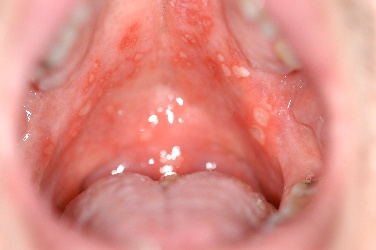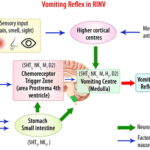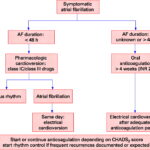Recurrent aphthous stomatitis (RAS) is one of the most prevalent oral mucosal conditions, marked by the repeated emergence of painful, shallow ulcers—commonly referred to as canker sores. These lesions affect the non-keratinized mucosa such as the buccal and labial mucosa, floor of the mouth, and soft palate. Although benign, RAS can significantly impair quality of life, interfering with eating, speaking, and oral hygiene.

Classification and Clinical Presentation
RAS is clinically categorized into three primary types based on ulcer size and frequency:
| Type | Size | Healing Time | Scarring |
|---|---|---|---|
| Minor (Mikulicz type) | <10 mm | 7–14 days | No |
| Major (Sutton type) | >10 mm | 2–6 weeks | Possible |
| Herpetiform | 1–3 mm (clusters) | 7–14 days | No |
Etiology and Contributing Risk Factors
Though the exact pathogenesis remains idiopathic, multiple factors are associated with RAS development:
- Genetic predisposition (positive family history in up to 40% of cases)
- Nutritional deficiencies (iron, folate, vitamin B12, zinc)
- Immune dysregulation
- Trauma (dental procedures, aggressive brushing)
- Hormonal fluctuations
- Food sensitivities (e.g., chocolate, coffee, gluten, acidic foods)
- Stress and anxiety
- Systemic diseases (e.g., Behçet’s syndrome, celiac disease, HIV)
Diagnostic Approach
Diagnosis is primarily clinical, supported by history and physical examination. Laboratory investigations are warranted for persistent, severe, or atypical presentations to rule out systemic conditions.
Recommended investigations include:
- Complete blood count (CBC)
- Serum ferritin, folate, vitamin B12
- Celiac serology (tTG-IgA)
- HIV testing in high-risk cases
Core Strategies for Prevention of RAS
1. Nutritional Correction and Supplementation
Addressing micronutrient deficiencies is crucial in recurrent cases.
| Deficiency | Recommended Supplementation |
|---|---|
| Iron | Ferrous sulfate 325 mg orally once or twice daily |
| Folate | Folic acid 1–5 mg daily |
| Vitamin B12 | Cyanocobalamin 1000 mcg IM weekly or orally |
| Zinc | Zinc sulfate 220 mg daily |
2. Allergen Identification and Elimination
Food diaries and elimination diets may help isolate specific dietary triggers. Common culprits include:
- Citrus fruits
- Nuts
- Gluten (especially in celiac patients)
- Sodium lauryl sulfate (SLS) in toothpaste
Switching to SLS-free oral hygiene products is a proven preventive measure.
3. Immunomodulatory Therapy for Chronic RAS
Patients with frequent and severe episodes may benefit from immunosuppressive or immune-modifying therapies.
- Topical corticosteroids:
Triamcinolone acetonide 0.1% in Orabase applied 2–4 times daily - Topical calcineurin inhibitors:
Tacrolimus 0.03% ointment, especially in steroid-refractory cases - Systemic agents for refractory cases:
Colchicine, thalidomide, dapsone, azathioprine
Use of systemic drugs requires monitoring due to potential adverse effects.
4. Stress Management and Behavioral Interventions
Psychological stress is a known trigger. Incorporating stress reduction strategies may decrease recurrence frequency.
Effective methods include:
- Cognitive-behavioral therapy (CBT)
- Mindfulness and relaxation training
- Regular sleep hygiene
- Exercise and yoga
5. Oral Hygiene Optimization
Mechanical trauma from aggressive brushing or orthodontic appliances often precedes ulcer formation.
Recommended practices:
- Soft-bristled toothbrushes
- Non-alcoholic mouthwashes
- Gentle flossing techniques
- Routine dental checkups for irritant removal
6. Laser Therapy
Low-level laser therapy (LLLT) offers both symptom relief and ulcer recurrence reduction, functioning via anti-inflammatory and analgesic mechanisms.
Long-Term Maintenance Strategies
1. Regular Monitoring and Documentation
- Keep a recurrence log to identify frequency, triggers, and treatment responses
- Encourage photographic documentation for teleconsultations
2. Prophylactic Topical Regimens
- Intermittent use of topical steroids during early prodromal symptoms
- Chlorhexidine mouthwash (0.12%) to reduce bacterial load
3. Probiotic Supplementation
Probiotics may modulate mucosal immunity and reduce ulcer episodes, although more studies are needed.
Suggested strains:
- Lactobacillus rhamnosus GG
- Bifidobacterium lactis
Special Considerations for Pediatric and Elderly Populations
Children:
- Avoid potent topical agents and systemic immunosuppressants unless absolutely necessary
- Emphasize dietary correction and behavioral modification
Elderly:
- Assess for drug-induced xerostomia or systemic disease
- Monitor for B12 deficiency-related glossitis and mucosal atrophy
When to Suspect Systemic Disease
Recurrent ulcers associated with genital ulcers, ocular inflammation, or skin lesions warrant evaluation for:
- Behçet’s disease
- Inflammatory bowel disease (Crohn’s, ulcerative colitis)
- Celiac disease
- Immunodeficiency states
Timely specialist referral is essential in such cases.
Preventing recurrent aphthous stomatitis requires a multifactorial approach integrating dietary optimization, immunomodulation, trauma avoidance, and stress management. Personalized strategies based on individual triggers and medical history yield the best outcomes, reducing the frequency, duration, and intensity of ulcerative episodes. With proper interventions, long-term remission is achievable for most patients.

